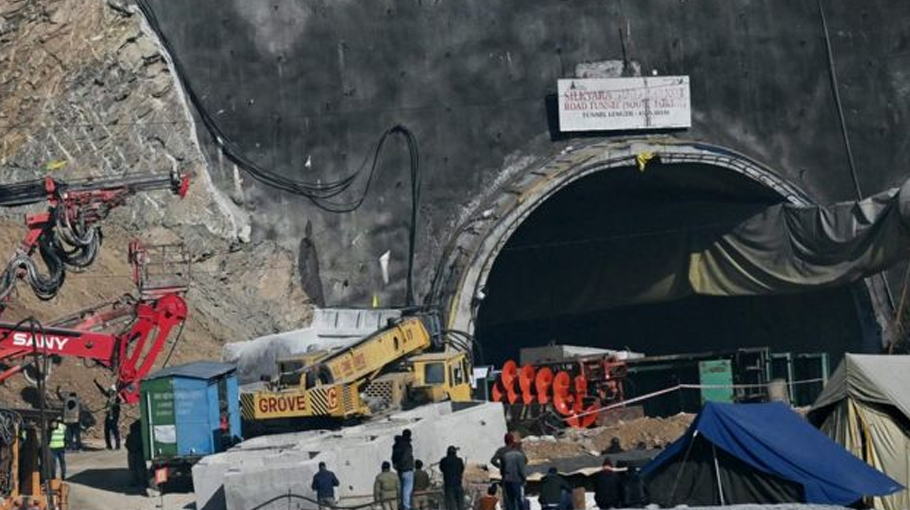Uttarakhand tunnel collapse
Rescuers explore new ways to reach trapped Indians

Authorities are working on new ways to reach the 41 Indian workers trapped inside a tunnel in Uttarakhand state after the main rescue plan suffered a major delay.
Until now, rescuers were drilling a hole horizontally through the rocks to allow the men to crawl through.
But the operation was halted after the drilling machine broke down on Friday.
The workers have been stuck for two weeks after a part of the tunnel collapsed due to a landslide.
The operation has been challenging from the beginning, mainly due to the presence of falling boulders, loose soil and metal inside the tunnel.
On Friday, the rescuers seemed to be making steady progress when the drilling machine broke down inside the tunnel after getting stuck on pieces of metal that have been mixed in with the debris.
The machine was completely removed on Monday morning.
In the meantime, rescuers have started to dig vertically into the tunnel to carve an alternative route for the trapped men.
Officials say they are also exploring other techniques, including manual digging, to reach them faster.
Vertical drilling
As per the plan, the rescuers will try to reach the workers from the top of the hill in Silkyara of Uttarakashi district, under which the tunnel was being constructed.
Officials have already created access roads and platforms to reach the top.
The rescuers will have to drill
86m (282 feet) downward to reach the workers - that's nearly double the distance of the horizontal route (46.6m).
By Monday morning, authorities had managed to dig 31m into the tunnel.
Development Corporation, which is leading the rescue operations, said that at the given pace, the rescue operations could be completed in another 100 hours "if no other hurdle comes our way".
Read More: Indian workers trapped in tunnel for 10 days seen on camera
If the process is completed smoothly, the workers will be pulled out in buckets through the vertical hole, according to The Hindu newspaper.
Officials say that bad weather, with approaching thunderstorms and the possibility of snowfall in the Himalayan region, could complicate the process - but add that they are prepared to deal with the situation.
Perpendicular drilling
Until now, authorities had been working to send multiple pipes of differing widths through the estimated 60m (197ft) debris wall to create a micro-tunnel through which the workers could be wheeled out on stretchers.
Now, they are also planning to drill 180m perpendicular to the main site of drilling to create an alternate route to reach the workers.
A platform was erected on Sunday to mount the special drills which will be used for this process, the Hindu reported.
But officials have not yet commented on the status of the operation.
Manual digging
Rescuers had managed to drill 34m downwards horizontally, with just 12m remaining, when the auger machine broke down on Friday.
The operation was put on hold until the emergency crews removed the machine from the tunnel, which was completed on Monday morning.
Now rescuers will start digging manually to remove the remaining debris from the route.
But they will continue to use a drilling machine to push the pipes into the opening, officials said.




